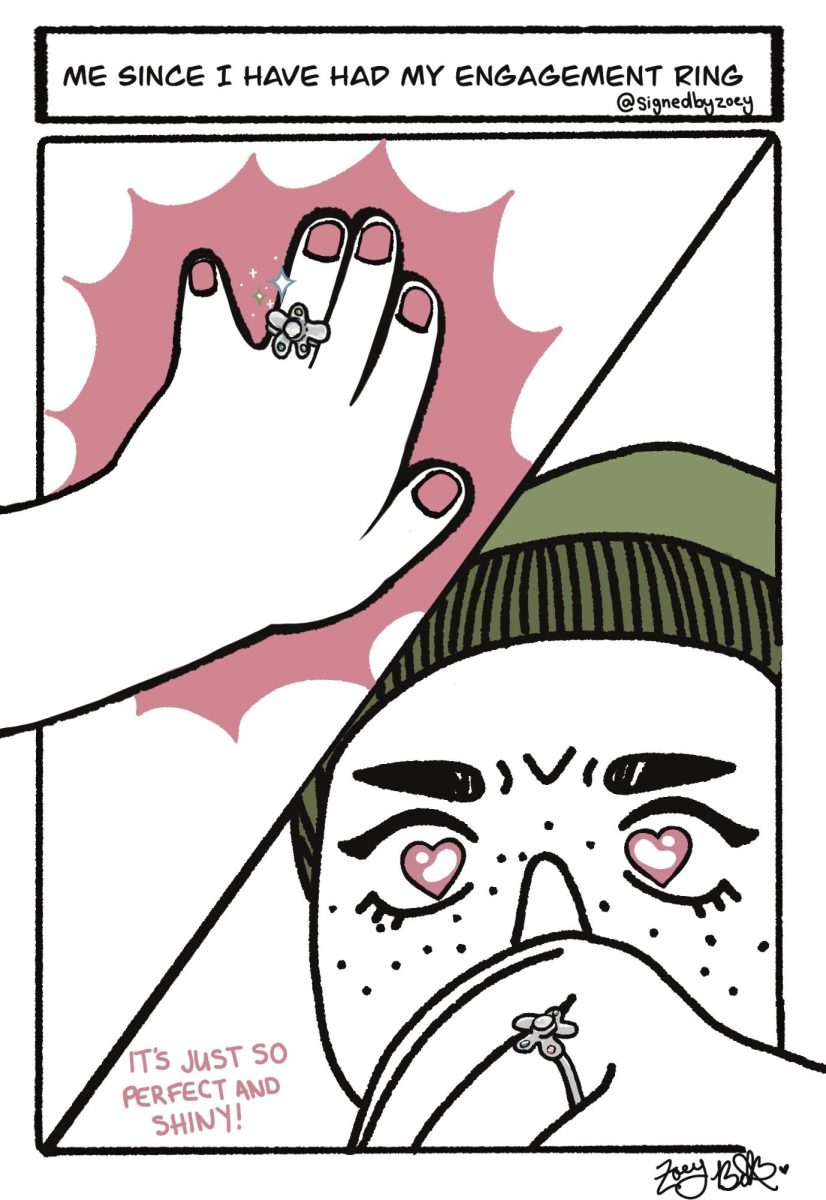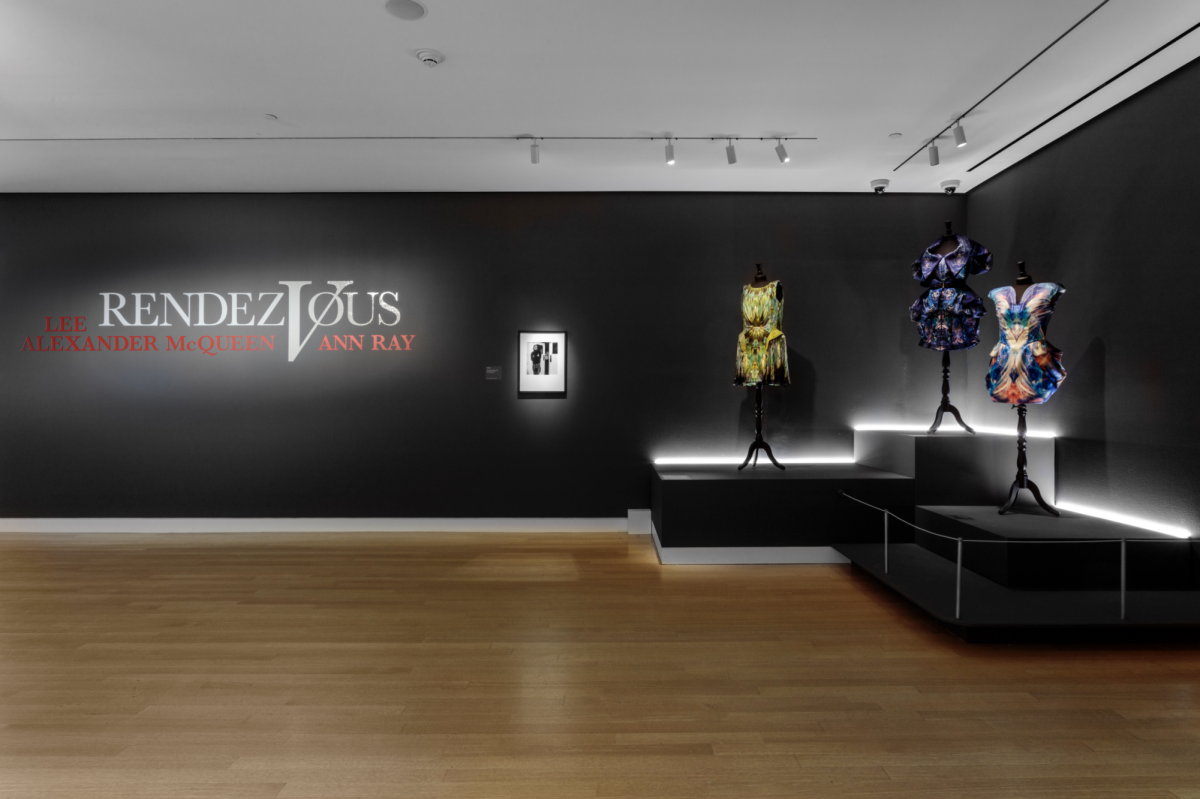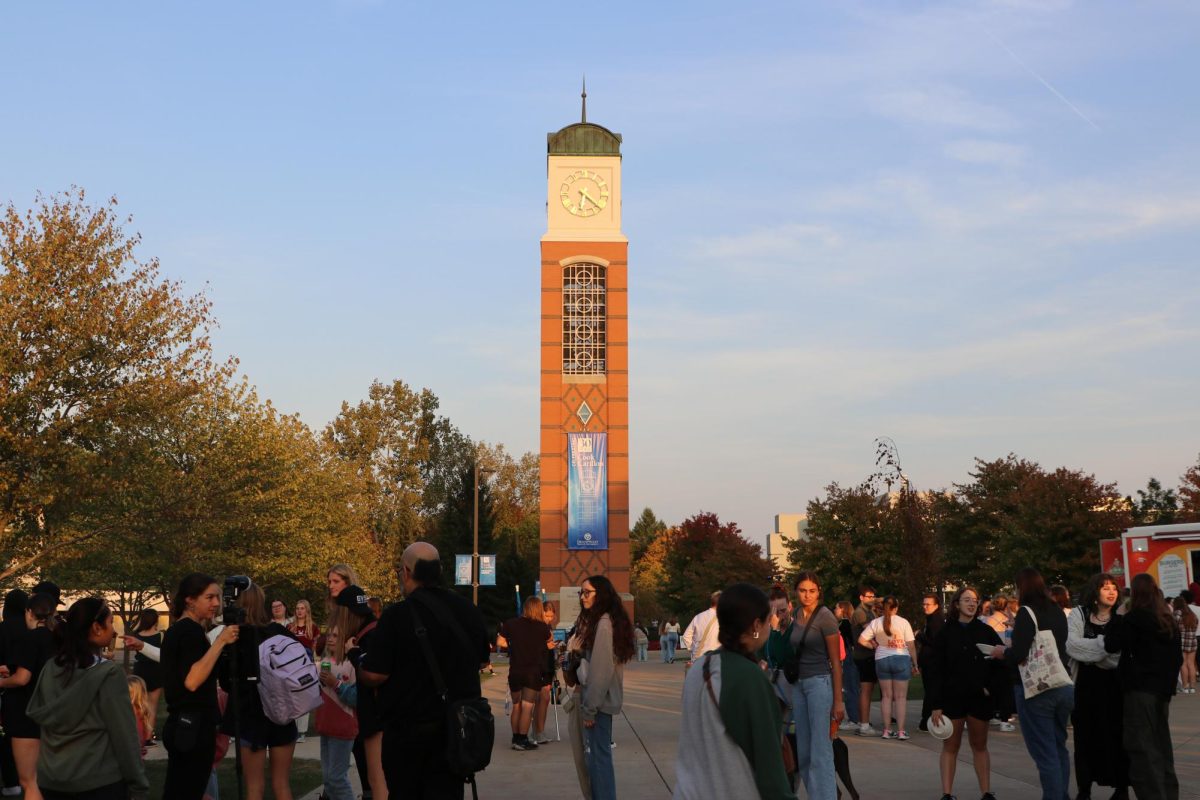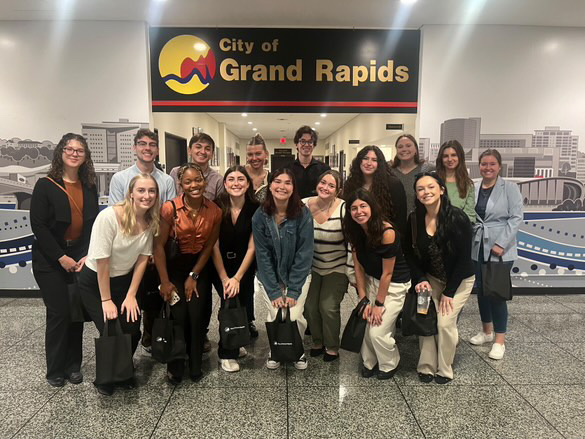Grand Rapids adopts ‘equal services’ policy

GVL/Archive Downtown Grand Rapids
Nov 27, 2017
To ensure that all community members feel safe in Grand Rapids, the city commission passed the “Equal Services Regardless of Immigration Status and/or National Origin” policy, which ensures that all community members—regardless of their immigration status—are provided with equal services and their rights are respected.
The policy, which was passed and went into effect Saturday, Nov. 18, prohibits public servants from making improper threats of deportation and coercing individuals regardless of immigration status or national origin. It also prohibits representatives of the city from verbally abusing anyone based on their or their family’s perceived immigration status or national origin.
This project had been in the works since the end of last year. At that time, the community relations commission (CRC) of Grand Rapids took it on in partnership with the mayor and city manager.
The topic arose when a group of concerned individuals, who majorly belonged to the Hispanic community of Grand Rapids, brought to light the issue of immigration and fear. Patti Caudill, diversity and inclusion manager of Grand Rapids, explained that upon taking up the project, the committee created a subcommittee to ensure that the goal was met of easing community members’ fears and ensuring inclusion.
“They identified a subcommittee to begin working on and looking at what the city of Grand Rapids can do to help alleviate some of the fear in the community and show the community that we are a welcoming community,” Caudill said.
Once the subcommittee was assembled, the group spent numerous months participating in community engagement. This included, but was not limited to, one-on-one meetings and small group meetings with community members and affected people in the community to identify the best method to support everyone in the community.
Caudill said drafting and passing this policy allows the individuals affected to be recognized and acknowledges their rights.
“City commission policies are guidelines that the city commission and the city as a whole must follow,” Caudill said. “The CRC looked at that as the best method to get the issue out into how we do business. By putting into policy format, that makes it undeniable what our intentions were.”
Tommy Allen, chair of the CRC, was asked to comment on the policy at a city meeting on Tuesday, Nov. 14. He later explained that the process of meeting with the Grand Rapids community and those who work in the city was fascinating due to the topics that arose, such as IDs, how certain members are treated at traffic stops and firsthand accounts from various members.
Out of all of this, he acknowledged that this policy allows those in the community who fear exclusion or deportation to have a voice. It allows them to speak up about their rights as community members when they typically wouldn’t be able to.
“The thing to remember, too, is that oftentimes those voices, those faces that we think would come forward, would be often there,” Allen said. “But in this case, this is a very vulnerable population. It’s a population that it’s very difficult for them to come out. I don’t think that people maybe fully realize that the passing of policy like this, it does ensure somebody that they feel comfortable being in Grand Rapids knowing that a police officer’s uniform is not going to violate their rights.”
For more information about this newly passed policy or what it entails, visit www.grcity.us.






















